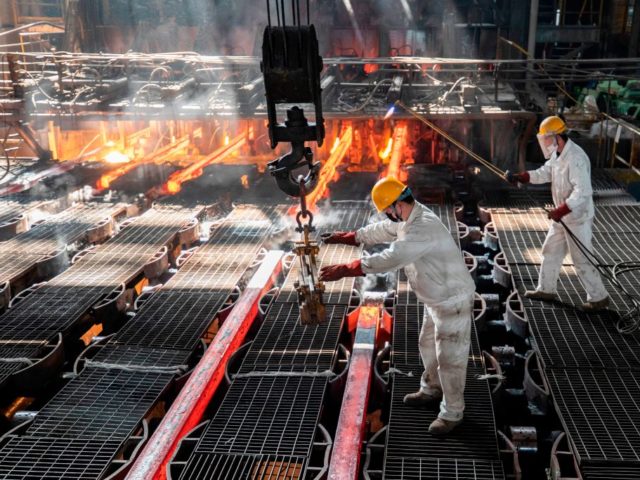Global industrial carbon dioxide emissions in 2020 suffered their biggest drop since the Second World War but then bounced back in the final month, according to the latest data from the International Energy Agency.
This ought to be good news — a sign of the global economy’s resilience despite the various Covid clampdowns which caused CO2 emissions in the U.S. and the EU to plummet in March, April and May 2020 by 10 per cent. Emissions from energy fell by about two billion metric tons, a plunge which the IEA’s authors say is ‘without precedent in human history’ and is the rough equivalent of ‘removing all of the European Union’s emissions from the global total’.
But the IEA is spinning it as a bad thing: a sign that we are not doing enough to cut our ‘carbon’ emissions. Note, for example, the tone of this tweet from the IEA’s Executive Director Fatih Birol.
This morning we released the latest IEA data on global CO2 emissions trends.
Don't miss this thread from our Executive Director @fbirol running through the key findings 👇 https://t.co/NMyztKppNF
— International Energy Agency (@IEA) March 2, 2021
Many countries talk a good game on their intentions to reduce carbon emissions. But according to the United Nations, few are prepared to put their money where their mouth is.
The Times (of London) reports that in the run-up to the COP26 climate summit, hosted this year by the United Kingdom, only the UK and the European Union have submitted CO2-reduction plans.
Only two of the world’s 18 largest greenhouse gas emitters — the UK and the European Union — have so far submitted plans for the COP26 summit that lay out extensive commitments and policies to reduce emissions. Other big emitters are either yet to submit updated strategies or have drafted plans that are too weak to achieve the 2015 Paris climate target of limiting global temperature rise to less than 1.5C above pre-industrial levels.
“This report shows that current levels of climate ambition are very far from putting us on a pathway that will meet our Paris agreement goals,” Patricia Espinosa, executive secretary of the UN climate change body, said. “While we acknowledge the recent political shift in momentum towards stronger climate action, decisions to accelerate and broaden climate action everywhere must be taken now.”
Later in the article, Alok Sharma — the UK minister acting as COP26 president — describes this as ‘an urgent call to action.’ Well of course he would. This is what they always say in the run-up to COP meetings: that more needs to be done and the case for reducing CO2 emissions is stronger than ever before.
In reality, as before, some countries — such as Boris Johnson’s green-obsessed UK administration — will commit unilateral suicide by promising CO2 reductions their economies can ill afford. Others are likely to be more circumspect about hobbling their economic growth in the name of green virtue signalling. The Times goes on to report for example that ‘Japan, South Korea, Russia, New Zealand, Switzerland and Australia [have] submitted plans that failed to improve on their 2015 targets.’
One thing is for certain — while Western nations such as the UK and, likely, President Biden’s USA submit their economies to ruinous ‘decarbonisation’ programmes, the new generation of world economic leaders such as China, India and Brazil will continue to prioritise growth over greenery.
This chart makes a point that the West should heed:
Major economies led the rebound in CO2 emissions, with China, India & Brazil all above 2019 levels by the end of 2020 and the US approaching them.
Emissions growth was propelled by the global economic recovery & a lack of clean energy policies ➡️ https://t.co/3KVyguWgnJ pic.twitter.com/toOmSPN5Ox
— International Energy Agency (@IEA) March 2, 2021
By the end of 2020, China, Brazil and India were all back in business – producing CO2 emissions (a useful metric for economic growth since it is a by-product of every industrial process) in excess of those they had emitted the previous year.
The U.S., on the other hand, was still catching up.

COMMENTS
Please let us know if you're having issues with commenting.